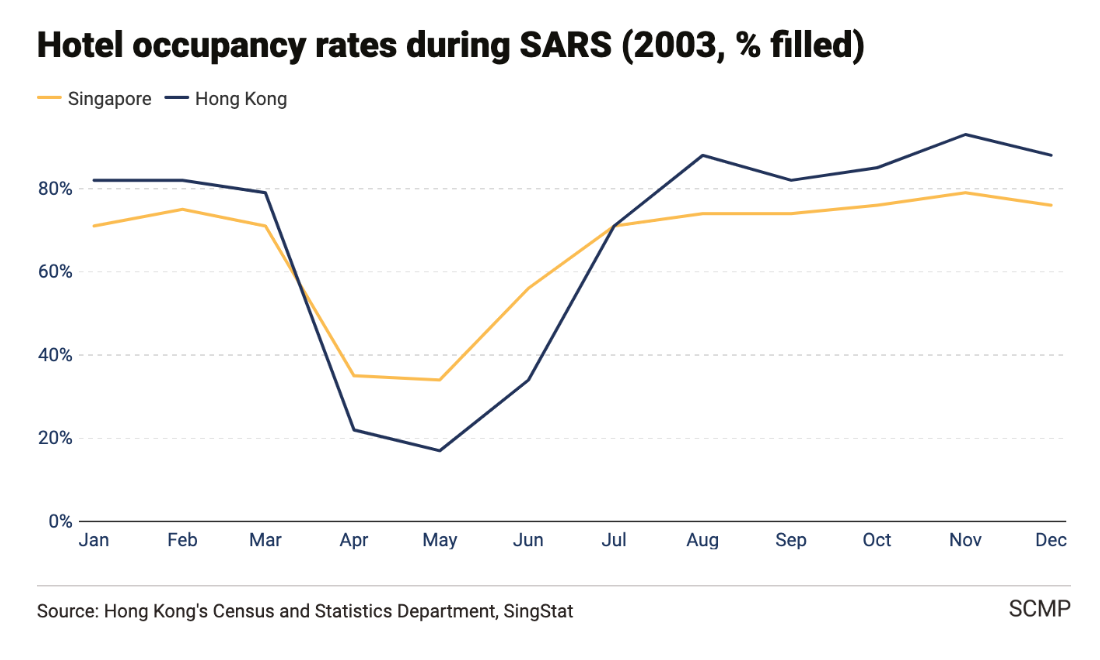The hospitality industry is resilient. It will bounce back. It was proven with SARS and it will be proven again with Coronavirus.

In working with thousands of hotels and venues worldwide, we’ve seen our clients through good times and bad. We know from experience that communication is key if you want to bounce forward after a crisis.
So where should hotels and venues focus their communication efforts over the next 6-12 months? Here are our top six suggestions.
1. Have a clear crisis response plan
Make sure your plan is up to date, accessible for your staff, and clearly communicated to your customers.
The best plans are visible ones. They don’t sit in a restricted folder on the server. They are living, breathing action plans. Make it known (and seen) that you care about the health of your people and customers.
Remember, people who have made the decision to travel will be vetting their accommodation options and looking for reassurance that your hotel is a safe choice. This is your opportunity to reassure them.
Here's an idea...
Update your website with a message from your General Manager. A compassionate note recognising the seriousness of the situation and showcasing your vigilant yet measured approach to managing it. While you’re at it, share that same message across your social channels too.
2. Empower your people
Visitors to your venue will be nervous. Their confidence has taken a hit and they’re unsure of the current environment. They want certainty, consistency and calmness.
Teach your staff to be ready and able to answer all questions thrown at them. It’s an opportunity to reassure guests, not just inform them. Build trust and develop the relationship. They’ll come back if you do.
Here's an idea...
Run some role play situations in your weekly team meetings. It not only ensures that your staff know all the facts, but it includes them in your journey to recovery.
3. Over-communicate
Silence creates doubt. What one person might see on your website, another person doesn’t. Keep your communication channels wide, communicate regularly, be consistent and always respond.Consider all your communication tools and avenues - phone, email, website, social media, onsite signage, welcome letters, display boards, pre-stay messages and post-stay engagement. Remember to find a nice balance between one-to-one communication and one-to-many. Your one-to-one efforts will build relationships; your one-to-many messages will boost credibility.
Here's an idea...In addition to a printed letter in their room, add a redirect to your Wi-fi login driving to a webpage with a message reassuring your guests of the precautions and actions you’re taking to keep the venue safe. This will ensure you’re speaking with all your guests, not just the ones who made the purchase. Better still, make sure the message can be translated into different languages.
4. Over-collaborate
Don’t isolate your business. Your network is critical. Remember, your suppliers are navigating this journey just like you. So it’s time to engage with them, have meaningful conversations, and help each other through the uncertain times. While survival is key, it means nothing if you have no partners, suppliers or customers left on the other side.
According to Google, search traffic for the word ‘staycation’ is up 50% year on year for 2020 so far. Refocus your attention and hone in on the domestic market. Create compelling reasons for local residents and domestic travellers to continue visiting your business, even if that only means stopping in for a visit to your restaurant, bar or wellness center.
Here's an idea...
Do you have an onsite restaurant? Partner with a transportation company and offer dining experiences with door-to-door service. No public transport crowds to contend with. And while you’re at it, spread your restaurant tables further apart so guests feel comfortable during their dining experience.
5. Over-deliver
You don’t have to make huge moves. But you do need to do small things, consistently, in a great way. Having fewer guests means you have more bandwidth to offer impeccable service.
People are nervous and they want to be looked after. And while small gestures may not seem like big business moves, they’re loyalty builders. This is what hospitality is all about and it’s exactly how you’ll keep your customers coming back.
Here's an idea...
Surprise and delight those guests who have chosen to stay with you during the tough times. Perhaps reward them with extra loyalty points? Give them access to the Club Lounge? Or simply make their stay more comfortable by boosting your in-room dining options.
6. Keep marketing
Revenue is down so you’re cutting costs. But cutting your marketing budget entirely carries enormous risk. Your customers will lose sight of you and your competitors will gain the advantage. You must hold your ground during the crisis. By maintaining a streamlined marketing program during the tough times, you’ll have a platform of strength to build upon once circumstances improve.
Refocus your expenditure. Review the tools you have access to. Be smart in how you use them. Adjust your messaging. Be compassionate. And bring your brand to life with a human-centered approach.
Here's an idea...
According to HubSpot, 64% of consumers are more likely to buy a product after watching a video. It doesn’t need to be fancy. In fact, you can do it all from your phone. Show what’s happening behind-the-scenes, let your team do the talking, and bring your brand to life. Make sure you share it across all your social media channels too.
During times of uncertainty, consistency is critical. Consider all the facts and make sure you’re getting your information from reliable sources. Don’t encourage further hysteria with over-the-top behaviour. Be consistent. Be calm. Over-communicate. And be yourselves.
Not sure where to go for reliable information? We recommend the World Health Organization and your national Department of Health for expert advice and reliable information.
This blog post was originally posted on localmeasure.com.
